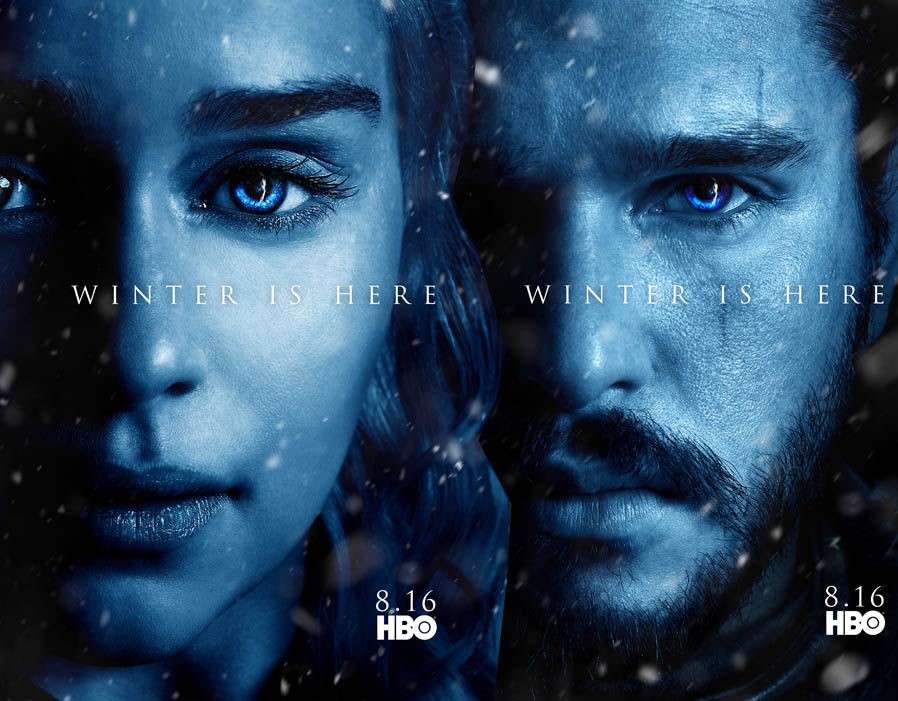The craziest fan theory you’ve heard yet: Westeros is not that different from our world.

If you are a big Game of Thrones fan like I am, then you probably agree that no matter how much you love the show, you are not planning a trip to Westeros anytime soon. Firstly, because it is obviously fictional, but secondly because it is ruthless as hell and I would definitely not last a week there. The world of Thrones is full of murderers, rapists, sadists—you name it. And that’s not to mention the culinary options and lack of a sanitary plumbing system.
Despite all its craziness, I have been thinking lately of how, in creating Westeros, George R.R. Martin created a world that is very similar to our own. The ruthless lawlessness and violence in Westeros might shock us viewers, but should it really? Martin, as well as the show’s creators Dave Benioff and D.B. Weiss, have created Westeros in our own image and they work from our own sordid history. So, what truly separates Westeros from our own world? In my opinion, the only thing that makes Westeros different is that it is unapologetic about its brutality. Westeros wears no masks of civility or politeness—it shows citizens exactly what kind of world they are living in and how they must survive.
On August 21st, the date of the penultimate episode of the seventh season of Thrones, Mindy Kaling tweeted, “I am legitimately worried about when Thrones ends and what it does to our already unstable collective mood as a nation.” Kaling is a comedian and this tweet no doubt elicits a laugh, but there is also a sense of truth to this statement. The reference here is clearly to the fact that the show’s massive popularity brings together a wide audience from different corners of the world. All you have to do is check Twitter on a Sunday night Thrones airs; #GameofThrones is almost always the number one trend as people share their shocked reactions, theories, and concern for the lives of their favourite characters. What Thrones also does is bring the world together in the pursuit of a common enemy, while simultaneously destabilizing our cozy notions of “good” and “bad”. People like the show because it is so recognizable to us, but is distanced enough (cushioned under the guise of a fictional world) that we do not need to be truly connected to what we are witnessing. If we take up Kaling’s worry that the collective mood will crumble once we no longer have our weekly fix of Game of Thrones, we might understand that by watching this seemingly horrific, gory show, we could actually learn something about how to make our own world a better place.
Our first lesson from Westeros might be that we need to elect Jon Snow as Lord Commander of the World as soon as possible. Since that is not really a realistic option, I am left with the real lesson: nothing will be solved while powerful families or nations squabble amongst themselves and vie for power. The “true enemy” in Thrones is not the Boltons or the Lannisters, but the “dead”; the army of White Walkers marching south to claim the living as their own. For us, the White Walkers are symbolic. We may not have an army of dead marching toward us to signal our impending doom, but, as a global community, we do have our fair share of environmental and other issues that can only be resolved if we all work together; if we stop seeing ourselves as Lannisters or Starks or Targaryens and simply view ourselves as the living.
The second and most important lesson I’m taking from Westeros and the Game of Thrones narrative is that no matter how far gone we might seem, it is simply never too late for redemption. How many characters have we watched go from bad to good? (Think Jaime Lannister). How many times have we watched a character we don’t like transform to someone we are all rooting for? (Think Theon Greyjoy, Sansa Stark). How many times has the show asked us to feel sympathy for even the most vilified of characters? (Think Cersei’s Walk of Atonement). We may all be struggling, failing to make the right decisions, and sometimes making even downright bad ones. It is never too late to start over, to try again, and to turn our negative storyline into something positive. Sometimes, it even takes getting to that lowest point to begin the transformative process of rebuilding. We see the characters in the brutal, nearly hopeless Westeros caught in difficult situations or circumstances all the time, and still they rise. They continue to fight. And if they can do it, why can’t we?
I’m not saying Game of Thrones is the be-all and end-all of our world. We are in many ways very different from the world portrayed in print and on our televisions. But, even the most fantastical and fictional worlds and stories can tell us something about ourselves, sometimes in a more effective manner than non-fictional claims of truth-telling. We are all waiting in anticipation for the next and final season of Thrones, anxious to see the fates of our favourite characters and hoping, like Mindy Kaling, that the end of this epic doesn’t further destabilize our world’s sense of unity. For us viewers, there will be no White Walkers marching to our doorsteps, no dragons coming to save us, and no prince or princess that was promised to rule. Long after the finale, however, the game of thrones will go on, the wheel will keep spinning, and our world will carry on in the same fashion as it has—unless we do something to change it.
